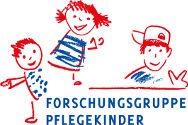Carme Montserrat, University of Girona
Abstract: |
Authors:
|
| Little is known about the perceptions and satisfaction with life of children in public care, however children’s subjective well-being (SWB) constitutes an important component in understanding their quality of life. The research aim is to explore differences in SWB between adolescents in residential care, kinship care and family foster care. The study used data from 669 adolescents in the child protection children in Catalonia (Spain) aged 12–14 years: 397 adolescents were in residential care, 251 adolescents in kinship care and 41 adolescents in family foster care. The mean age was 13.3 years old, 54% were boys and 85% were born in Spain. The questionnaire designed includes a psychometric scale on SWB: the Personal Well-Being Index—School Children (PWI-SC7). Findings showed that adolescents living in kinship and foster care reported better SWB in all life domains than those in residential care. Those variables that may influence their SWB are, on one hand, gender and age, and on the other agreeing with their placement, satisfaction with school, with their relationships with friends, and with their use of time and the Internet. These findings highlight the need to address the participation of children in any decision that affects their lives, the importance of providing support for the education of children in care, and the importance of having friends and of their leisure time. Keywords: subjective well-being, residential care, kinship care, foster care
|
